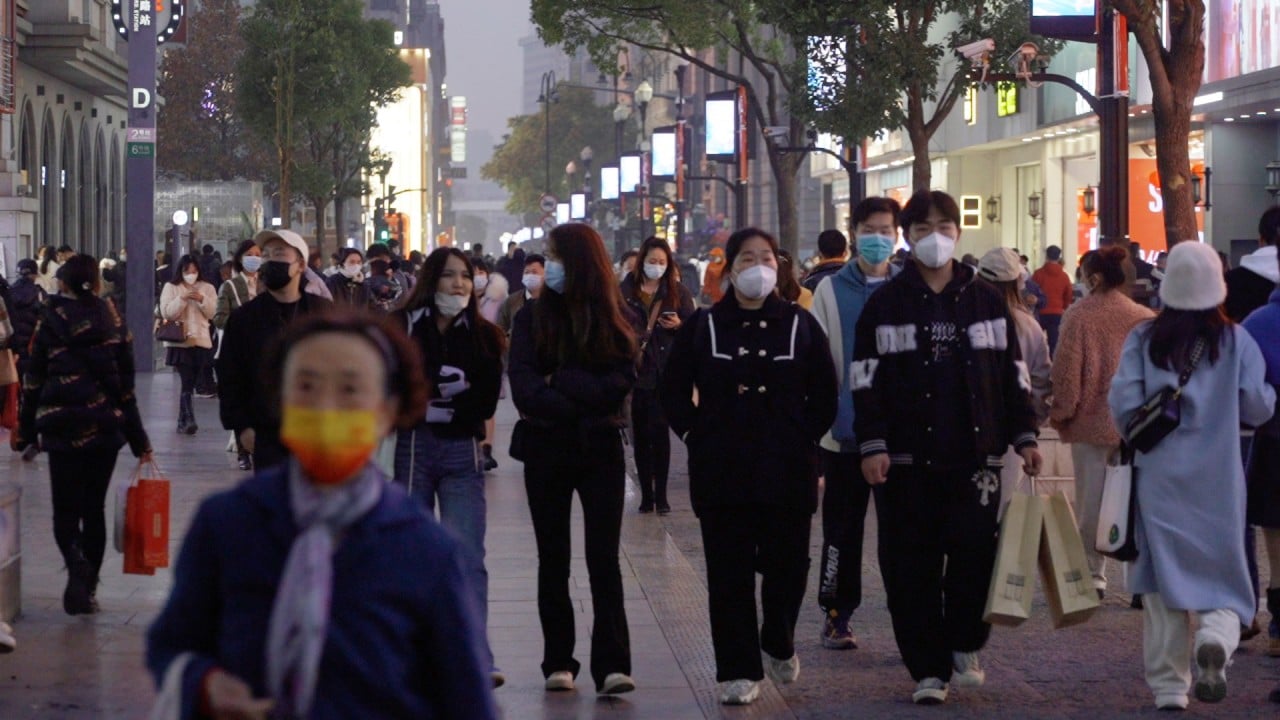
US report on Covid-19 origin vindicates support of lab-leak theory, Republicans say
- Classified Department of Energy report concludes with ‘low confidence’ that a lab leak was likely behind coronavirus spread
- Though many scientists maintain that evidence is stronger for natural origins, some US lawmakers now treat the theory as fact
A report by the US Department of Energy which concluded with “low confidence” that Covid-19 likely originated from a lab leak in China has prompted many Republicans to claim vindication for their previous support of the theory – even though many scientists maintain that the evidence is stronger that the coronavirus had natural origins.
In a classified report whose contents were first disclosed over the weekend, the department reportedly suggested that a lab accident could have led to the spread of the deadly virus that has killed more than six million people around the world.

Covid-19 was first reported in the central China hub city of Wuhan in late 2019. The city is also home to the Wuhan Institute of Virology, the Chinese Centre for Disease Control and Prevention and the Wuhan Institute of Biological Products.
In the US intelligence community, “low confidence” means that the analysts were unsure of the credibility of the available information from which a solid judgment could be drawn.
So far, only the US Federal Bureau of Investigation has backed the lab leak hypothesis with what the agency described as “moderate confidence”. Four other federal agencies, including the National Intelligence Council, have concluded with “low confidence” that the virus was transmitted naturally to humans through an animal host.
US agency says Covid-19 likely emerged from China lab leak: reports
In 2021, an intelligence review ordered by the White House noted that the intelligence community was unable to determine the origins of the virus.
That review came after a World Health Organization team that visited Wuhan to investigate the origins of Covid-19 said it was “extremely unlikely” that the virus originated in a lab. The Biden administration questioned whether China allowed adequate access for the WHO experts to reach a firm conclusion.
Despite its ambivalence, the Energy Department’s assessment has given new visibility to the lab-leak theory, with its supporters now treating the hypothesis as fact and calling for a new investigation into the mishandling of the pandemic.
“Some people who shamed us, canceled us, & wanted to put us in jail for saying covid came from the Wuhan Lab … are starting to say what we said all along”, Representative Marjorie Taylor Greene, Republican of Georgia, posted on Twitter.
Senator Tom Cotton, the Arkansas Republican who was one of the first US lawmakers to peddle the theory in 2020, also wrote on Twitter: “Being proven right doesn’t matter.”
He demanded that the Communist Party of China should be held accountable “so this doesn’t happen again”.
Still, many virologists and epidemiologists have noted that the Energy Department assessment apparently lacks any new evidence.
‘Stop smearing China’: US report on ‘Covid lab leak’ slammed by Beijing
“As I said before, I am willing to consider my hypothesis if presented with verifiable, affirmative evidence,” said Angela Rasmussen, a virologist at the Vaccine and Infectious Disease Organisation.
Referring to a July 2022 report by Science magazine, Rasmussen added that “for now, I see no evidence that suggests the current scientific evidence base is incorrect.
“And that evidence base continues to suggest the pandemic originated via zoonotic spillover at the Hunan market.”
Florian Krammer, a microbiologist at the Icahn School of Medicine at Mount Sinai in New York, said that though the lab-leak theory could not be ruled out, “given the ample chance of the virus to jump into humans directly – or via an intermediate host – I find it unlikely”.
Yet Alina Chan, a molecular biologist specialising in gene therapy and cell engineering at the Broad Institute of MIT and Harvard, said that it wasn’t pro-science to reject the “entirely plausible” lab leak hypothesis.
Questioning the delays in launching a bipartisan investigation into the origins of covid-19, she wrote on Twitter: “Who in US might possess key evidence or info about coronavirus work in Wuhan? Were US doctors in Wuhan in late 2019? Can they tell us what they heard about a novel respiratory disease and when?”


